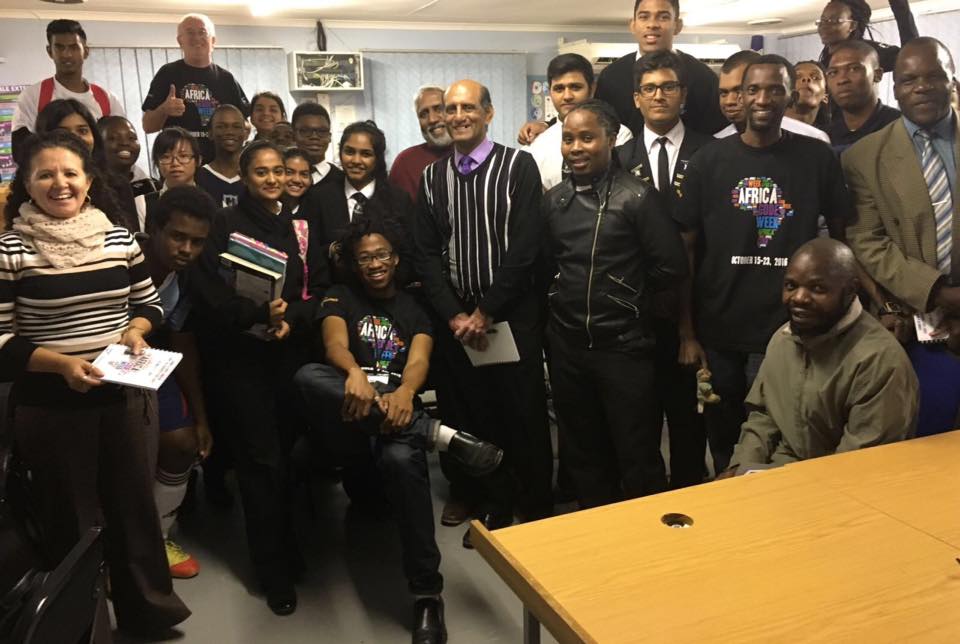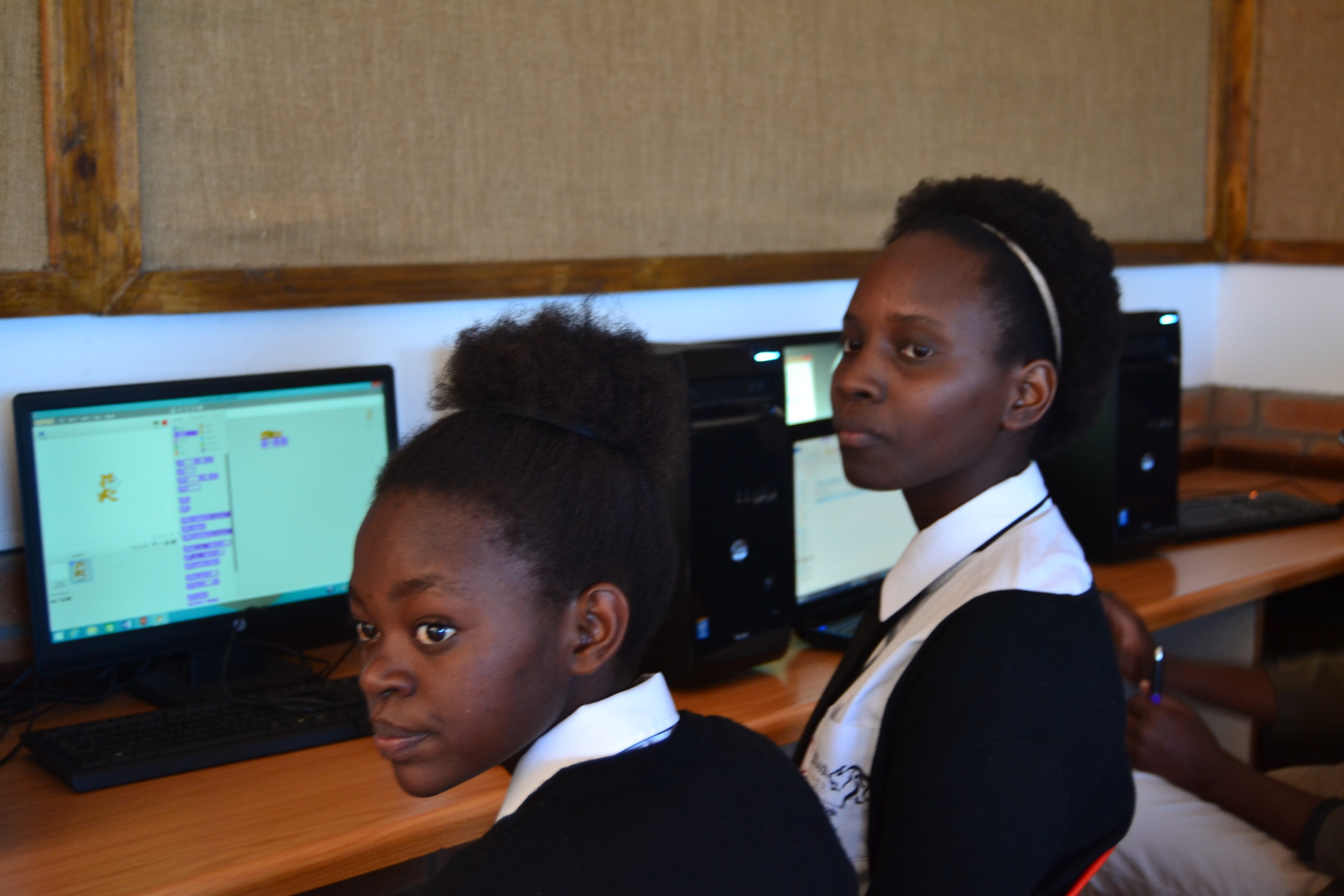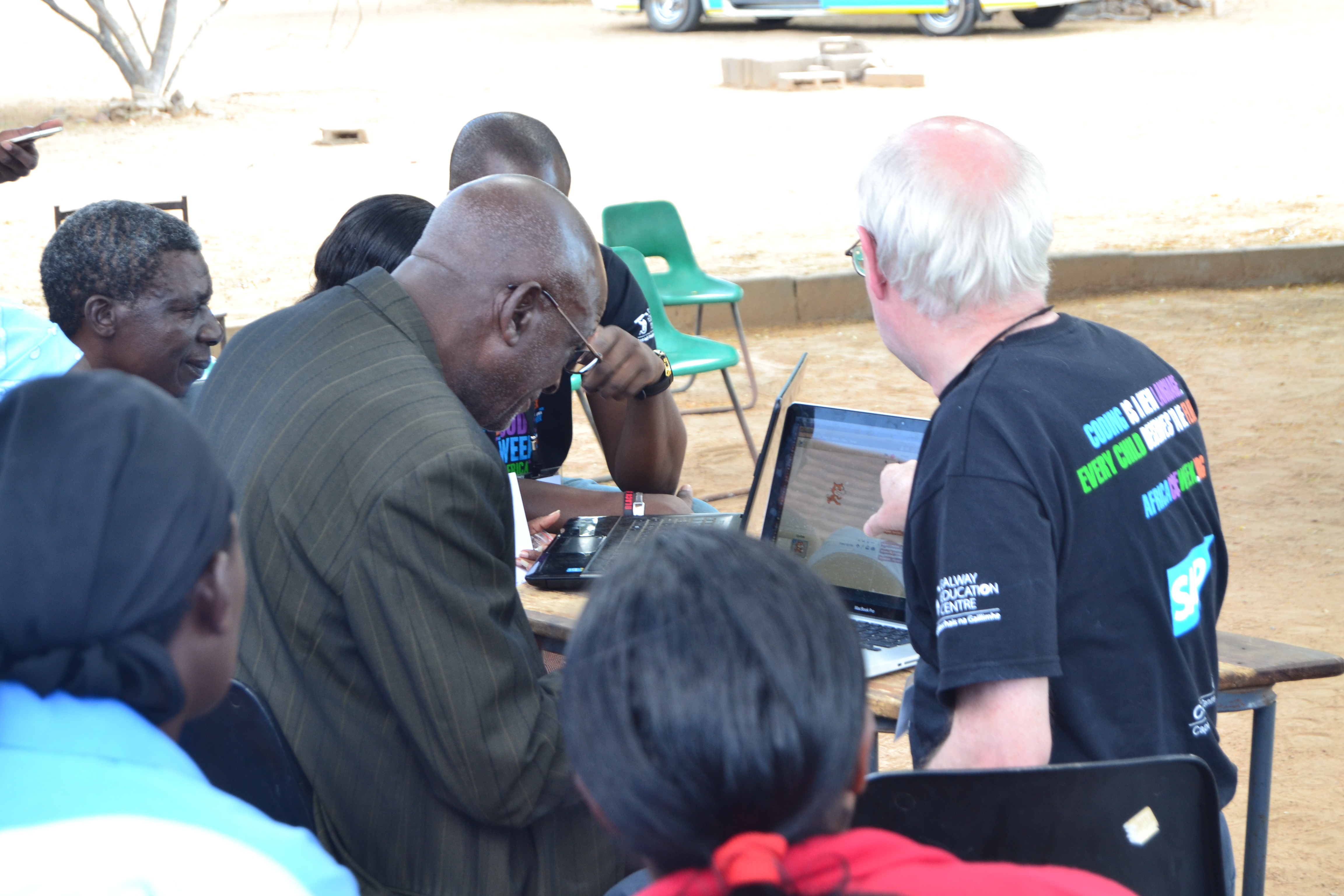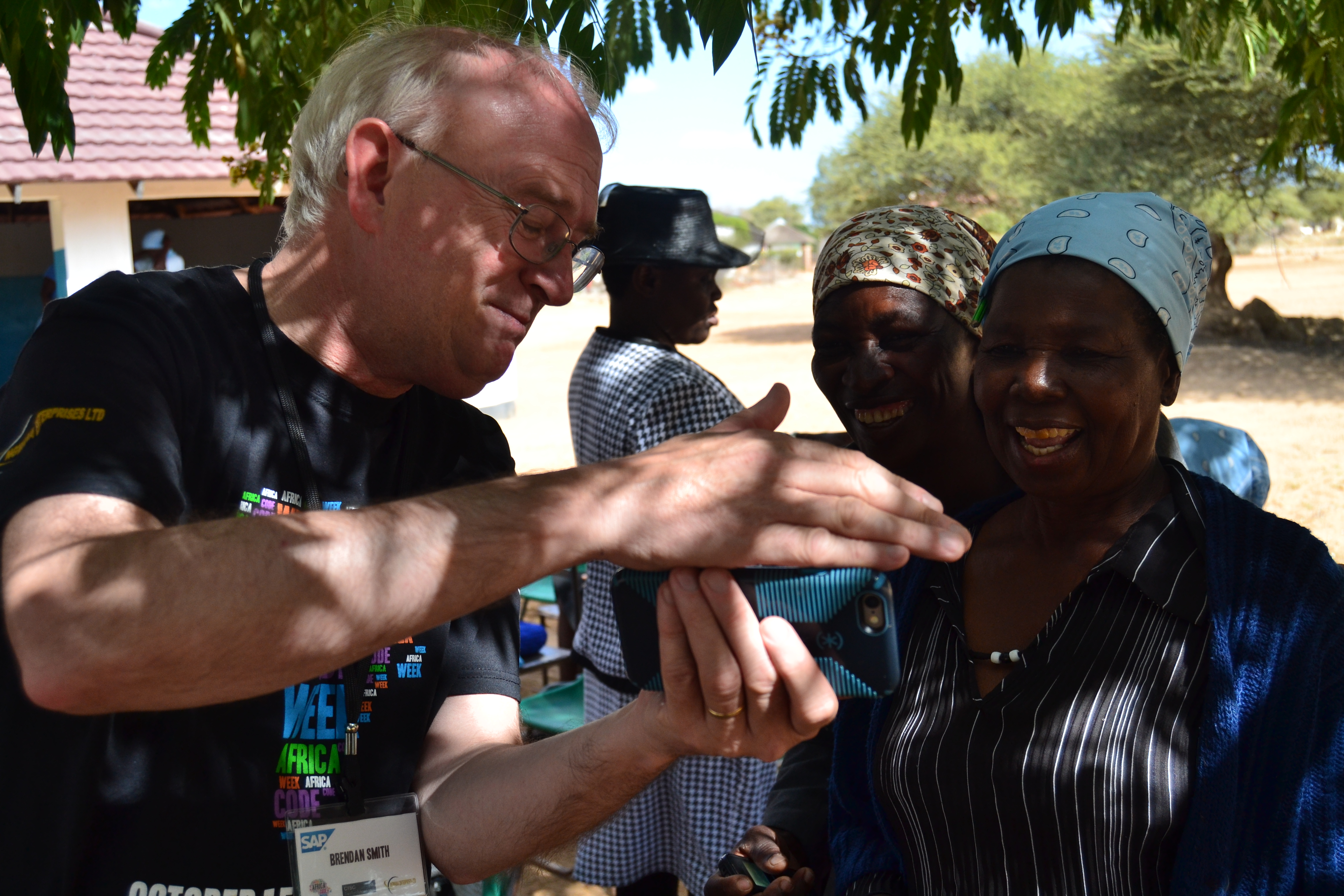Over many action-packed decades, I have been lucky enough to have been part of some wonderful science technology educational initiatives; to have meet some inspirational heroic individuals; to have experienced fascinating peoples, cultures and places; to have been involved in many campaigns designed to improve the lives of grassroots communities, overcome discrimination and protect the environment.
But Africa Code Week (ACW) truly stands out as a one-in-a-million lifetime opportunity to make a difference to people's lives on a vast scale. Its ambitious vision is nothing less than to up-skill the young generation of a whole continent in order to allow them create a better future. So over the last year I have been to Ethiopia, South Africa, Rwanda and Botswana with more countries to follow. Every trip fascinates me, every experience thrills me, every landscape excites me, every culture encountered energizes me. In the process I always learn more from the peoples I educate than they do from me.

For instance on our present trip to Botswana, I and our ACW team were, thanks to the facilitation of local organiser Mooketsi Bennedict Tekere, given the opportunity to travel to the rural village of Mathangwane to meet the local chief and village council ('Kgotla') in order to explain and debate the merits of our programme. We were greeted with warmth and affection in the traditional African vibrant way, and we explained our mission to support local village development and enhance indigenous culture through exploiting web technologies. Chief (Kgosi) Lewanika Mpatane and two members of the 'Kgotla' expressed interest in being taught the basics of coding. The chief is a very cultured man who speaks many languages. His assistant Kennie (Lady K) has obtained a Commerce degree from Monash university in South Africa. But with limited infrastructure, low electrical connectivity, high emigration and rudiments of education, they were fully cognisant of the benefits of digital creativity. So under the shade of a giant tree - the traditional meeting place for an African 'Kgotla'- the chief and two volunteers from the village development council started coding eco-themed programs.
We believe that Kgosi Mpatane is the first traditional rural chief in Africa to learn coding. So impressed was he by what he was able to achieve in such a short time frame that he promised to spread the word to his fellow chiefs across Botswana.
Huge thanks goes out to Claire Gillissen, Julie Cleverdon, Bernard Kirk, Kevin Conroy, Ibrahim Khafagy, Aphrodice Foyo Mutangana, Mooktsi Bennedict Tekere and the army of volunteers (including Ian MacDonald, Stefan Alexandru Florea, Nuala Allen, Véronique Desegaulx Kevin Morrissey Nshuti Gacinya Olivier, Hervé Rurangwa) involved. ACW is bringing digital literacy and skills as well as the potential of new sustainable jobs to the youth and communities across the length and breath of Africa.
The continent has a lot of challenges to overcome- unprecedented population growth, unplanned urbanisation, deforestation, habitat loss, extermination of species, pollution, ethnic conflicts, corruption, neo-colonialism and disparity of wealth distribution. But I know that education, especially in technology, can empower societies. Furthermore I have seen how Africa can teach the rest of the world how to do things better. Their indigenous music can be infectious; their traditional sense of community values totally uplifting.
Let's remember Rwanda: in a nation that suffered from one of the worst genocides of the 20th century only two decades ago, strategies in grassroots development, conflict resolution, the introduction of local justice into the legal system and environmental protection are shining examples for us all to follow.


